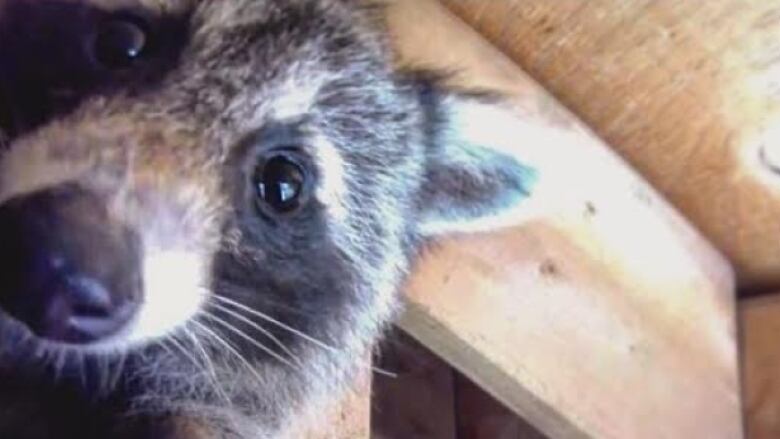1 year on, millions spent, no end to rabies spread in Hamilton
Province is preparing for a three to five year battle to combat the outbreak

It has been one year since raccoon rabies appearedin Ontario for the first time in over a decade, and wildlife experts have so far not been able to stop the spread of the virus.
In fact, the city says, it will likely take three to five years to get things under control, if all goes well.
The fight against the disease that was once largely driven out of Ontario will cost the province about $4.5 million for the 2016-2017 budget but if rabies was allowed to spread across southern Ontario, costs could balloon to $8 million to $12 million a year, said Chris Davies, the manager of the wildlife research and monitoring section of the Ontario Ministry of Natural Resources and Forestry.
People can't forget about rabies, because it is a fatal disease.-SusanHarding-Cruz,city of Hamilton, Public Health
"This is a new type of outbreak for us because it's just so urban," Davies said. "The numbers we're seeing are more or less what we expected given the density of raccoons and skunks in the urban areas."
The ministry has found 253 cases of rabid animalssince last year, with205 of them in the city of Hamilton itself.Ithas alsotested 4,500 animals that were either behaving strangely or found dead in unlikely areas.
Two thirds of those animals were raccoons, with about another third being skunks. Ministry workers have also found one cat with rabies, as well as a fox and two cows.
"It has just been a whirlwind," said Susan Harding-Cruz, the city's vector borne disease manager. "People can't forget about rabies, because it is a fatal disease."
It all starts with 'Mr. Satan'
The outbreak's discovery started with a dog named "Mr. Satan" who, along with another dog, got into a brawl with an aggressive raccoon in the back of a city animal control van last December.
That raccoon tested positive for the virus, marking the first documented case of raccoon rabies in the province since 2006, which ballooned into the first widespread outbreak since 1999, when rabies was found in the Brockville-Prescott area.
The current Hamilton-area outbreak brings with it a host of challenges, as urban density means it's not possible for ministry staffers to just drop rabies vaccine baits from a helicopter, like they can do over forest areas. Instead, they have to do it by hand.
To date, the province has distributed 1.6 million baits with the vaccine. "It has been quite an effort," Davies said. The Ministry has even taken to experimenting with a kind of "automated feeder system" where animals can access the vaccine on their own in certain locations such as underneath overpasses much like cat and dog versions used at home for kibble.
The city even offered low cost animal vaccinations to make sure people's pets were protected. Costs have risen on the that end as well, and the public health department was granted a $360,000 grant on top of its normal budget.
Harding-Cruz says that much of the city's work has gone towards raising awareness, but also investigating potential exposure to humans.
Rabid raccoons found most recently on Dec. 2
Brad Potts, supervisor with animal services, told CBC News the outbreak has had a huge impact on their resources. Animal services staff have picked up 800 cadavers linked to rabies so far, and have had to euthanize over 100 animals but are doing so without any funding increase. His department will be asking city council for help in the new year, he says.
Maps provided by the ministry show animals that have tested positive for rabies have been found all over the Hamilton area, from the lower city to the Mountain, and outlying areas.
According to the city's website, the latest raccoons that tested positive for rabies were found on Dec. 2 in lower east Hamilton. Other affected areas includeHaldimand-Norfolk, Niagara Region, Brant County and Halton Region.
As we head into the winter months, the ministry is stopping the vaccine baiting, with plans to pick it back up in April. That's a sharp contrast to last winter, when mild temperatures meant the ministry could distribute vaccinations throughout most of the winter.
In the meantime, the city and the provinceis offering these tips to protect yourself and your pets from rabies:
- Make sure your pets are vaccinated.
- Don't let your pet wander off its leash.
- Don't move captured wildlife, as you could be spreading the virus.
- Call the ministry or the city to report animals acting strangely.
- Don't approach unknown animals, or animals that are behaving strangely.













_(720p).jpg)


 OFFICIAL HD MUSIC VIDEO.jpg)
.jpg)



























































































